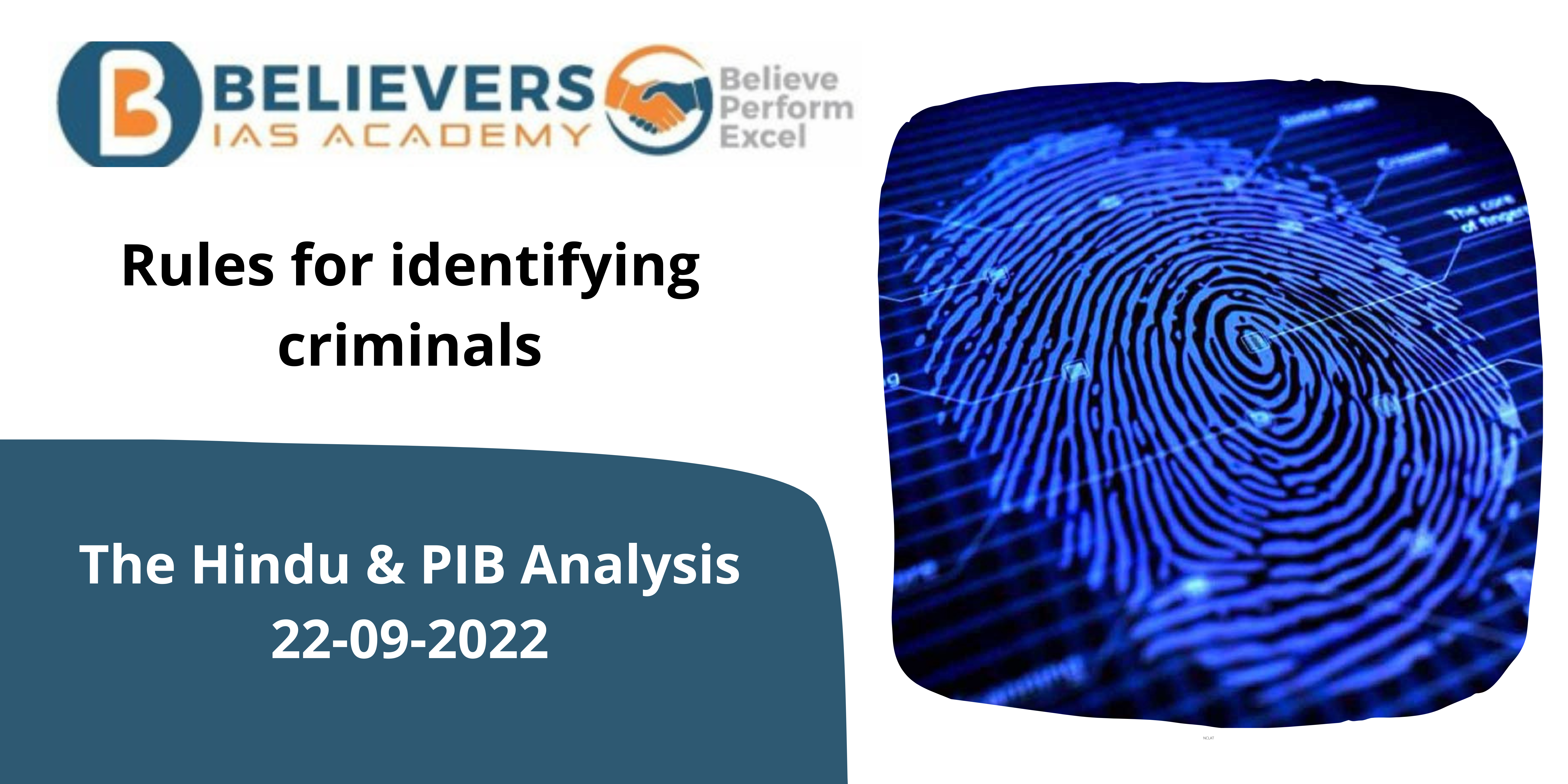Rules for identifying criminals
#GS-02 Governance
For Prelims
About Criminal Procedure (Identification) Act, 2022:
- The new law provides legal sanction to the police to take physical and biological samples of convicts as well as those accused of crimes.
- It is aimed at replacing the Identification of Prisoners Act, 1920, which itself is a colonial-era law.
The Bill describes:
- the type of data that may be collected
- persons from whom such data may be collected
- the authority that may authorize such collection.
- It also provides for the data to be stored in a central database.
The National Crime Records Bureau (NCRB) will be the central agency to maintain the records.
- It will share the data with law enforcement agencies.
- States/UTs may authorize agencies to collect, preserve, and share data in their respective jurisdictions.
- The collected data will be kept in digital or electronic form for 75 years.
What Data that can be collected:
- Finger-impressions, Palm-Print impressions, Footprint impressions, Photographs, Iris and Retina scan, Physical, Biological samples and their analysis, Behavioural Attributes including signatures, Handwriting, or any other examination.
What does the new Rules say:
- The notified rules state that samples of those detained under preventive Sections such as 107, 108, 109, 110, 144, 145 and 151 of the CrPC shall not be taken unless such person is charged or arrested in connection with any other offence punishable under any other law.
- The rules do not mention the procedure to be adopted for convicted persons.
For Mains:
What are the concerns?
- The Act empowers a Magistrate to direct any person to give measurements, which till now was reserved for convicts and those involved in heinous crimes.
- It also enables the police those who are at the rank of a Head Constable or above to take measurements of any person who resists or refuses to give measurements.
- This can lead to violation of privacy since it allows the recording of samples of even political detainees.
- The procedure for destruction and disposal of records are yet to be specified by the NCRB.
- This means that the data can be kept by the government even in the case of acquittal.




